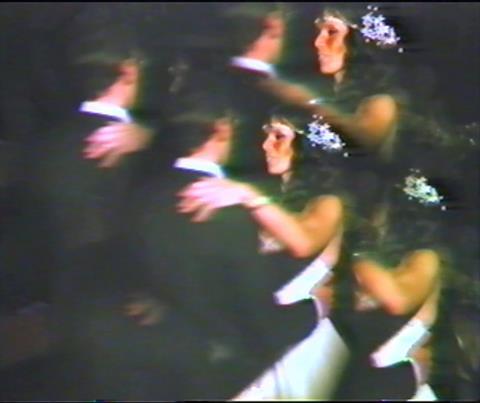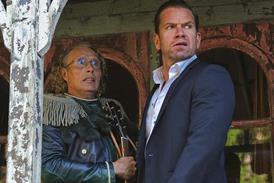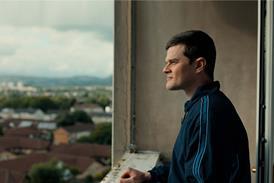A filmmaker’s montage of maternal memories searches for the bigger picture

Dir: Maria Silvia Esteve. Argentina/Chile. 2018. 103 mins.
The past is never really dead. It’s a living thing, constantly growing in our memories, changing in its meaning. That’s the message of Silvia, filmmaker Maria Silvia Esteve’s attempt to come to terms with her feelings about her late mother. Less a documentary than a cinematic essay, Esteve’s film draws on a collection of home videos, most of them from the ’80s, to sketch out a life of privilege and pain.
Images are deliberately blurred or degraded – made to stutter, like film caught in a projector
Part memoir, part art installation, the Spanish-language film is deeply felt – but probably too relentlessly personal to attract many fans outside of specialty fests. ts tragic heroine is the darkly beautiful Silvia, who marries an Argentine diplomat and briefly anticipates a chic and comfortable life abroad. It would certainly be a change from her childhood, marred by a badly broken home and a disturbed and abusive mother.
But although Silvia’s marriage begins in optimism, storm clouds soon gather. Her jealous husband thwarts her dreams of a career. Home alone with three children, she begins to battle depression, an illness her doctor treats with amphetamines.
The film comprises two batches of home-movie footage – most from the early days of the marriage, some from more than a decade later – and Esteve pokes it, prods it, plays with it. Videos are slowed down, repeated, broken into multiple pieces. Images are deliberately blurred or degraded – made to stutter, like film caught in a projector, or disappear behind the lines of bad video tracking.
And meanwhile – offscreen – Esteve and her two sisters, now all adults, chat on the soundtrack, analysing the films we’re watching, and arguing over their own family memories. Is that really the story of how their parents met? Who was that man their mother could have married, and didn’t? Sometimes small arguments erupt. Sometimes uncomfortable silence prevails.
The other sisters clearly aren’t as sold on this project as the filmmaker – one finds it embarrassing – but Esteve sees drama here. And melodrama – unremarkable scenes of her mother’s everyday life are scored to swathes of booming romanticism from Mahler and Bruckner, or intercut with clips from Silvia’s favorite film, Gone With the Wind.
You can feel the filmmaker working overtime, yet none of this rivals the similar but superior Tarnation, Jonathan Caouette’s impressionistic 2003 film of his relationship with his own emotionally fragile mother. Esteve creates plenty of effective montages here, but where’s the larger meaning? What did her mother really mean to her, and what should she mean to us?
Certainly, the visuals are striking. And some audience members, depending on their age, may enjoy re-encountering a few `80s pop-culture moments, and realising just how universal they were – a Van Halen song playing in the background in Guatemala, a treasured “Sailor Moon” costume in Argentina. The details throughout are specific.
But what’s their real significance? And what’s Silvia’s? With Esteve handling production, direction, writing and editing, it’s obviously the work of a still deeply devoted daughter. Unfortunately, she also remains its best audience.
Production companies/international sales: Hana Films, mariasilviaesteve@gmail.com
Producer/screenplay/editing: Maria Silvia Esteve
Cinematography: Carlos Esteve
Music: Silvia Zabaljáurequi















![[Clockwise from top left]: Paul Thomas Anderson, Chloe Zhao, Ryan Coogler, Park Chan-wook](https://d1nslcd7m2225b.cloudfront.net/Pictures/274x183/9/0/0/1467900_writerdirectors_192733.jpg)






